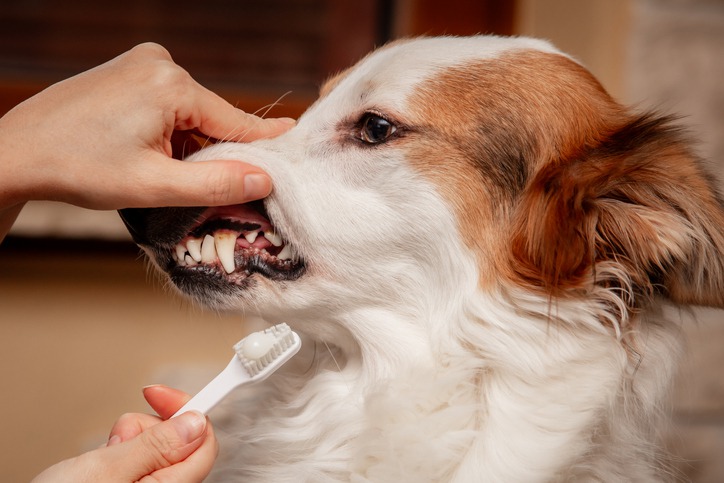Regular wellness check-ups for pets are an essential aspect of responsible pet ownership. They ensure that our furry companions remain healthy, happy, and thriving. These routine examinations, typically conducted annually, are proactive measures to detect potential health issues before they become serious problems.
A wellness pet check-up is a comprehensive evaluation of your pet’s overall health, aimed at preventing diseases and detecting any health issues early. Here are the detailed steps involved in a wellness pet check-up:
1. Medical History Review
The check-up begins with a thorough review of your pet’s medical history. During this initial stage, the veterinarian at the animal medical center will ask detailed questions about any changes in your pet’s behavior, diet, exercise routine, and any recent symptoms or concerns you might have noticed. This crucial information helps the vet understand your pet’s overall health background and any ongoing issues they may be experiencing.
2. Physical Examination
The vet conducts a thorough physical examination of your pet. This includes:
-
Weight Check: Monitoring your pet’s weight to identify any significant changes that could indicate health issues.
-
Temperature: Take your pet’s temperature to check for fever or other abnormalities.
-
Heart and Lungs: Listening to the heart and lungs with a stethoscope to detect irregularities, such as heart murmurs or respiratory problems.
-
Eyes and Ears: Examining the eyes for signs of cataracts, infections, or other issues and checking the ears for infections, mites, or other problems.
-
Mouth and Teeth: Inspect the teeth and gums for signs of dental disease, plaque buildup, or oral health issues.
-
Skin and Coat: Assessing the skin and coat condition for signs of allergies, parasites, or skin infections.
-
Limbs and Joints: Check the limbs and joints for any signs of pain, swelling, or mobility issues.
3. Vaccination Updates
The veterinarian reviews your pet’s vaccination records and administers any necessary vaccines. Vaccinations are crucial for preventing infectious diseases, and keeping them up-to-date ensures your pet’s continued protection.
4. Parasite Prevention
The vet will discuss and recommend preventive measures for parasites, including fleas, ticks, heartworms, and intestinal worms. This might involve prescribing medications or topical treatments to keep your pet parasite-free.
5. Diagnostic Testing
Depending on your pet’s age, breed, and health status, the veterinarian may recommend routine diagnostic tests such as:
-
Blood Tests: To check for underlying conditions such as anemia, infection, or organ dysfunction, which can be crucial in catching illnesses early.
-
Urinalysis: To assess kidney function and detect urinary tract infections or other issues, ensuring your pet’s excretory system functions appropriately.
-
Fecal Exam: To check for intestinal parasites affecting your pet’s digestive health and overall well-being.
-
X-rays or Ultrasounds: If your pet has specific concerns that need further investigation, these imaging tests can provide detailed insights into its internal structures.
For more specialized concerns, you might consult an internal medicine vet in Murfreesboro, TN, who can provide advanced diagnostic and treatment options tailored to your pet’s unique health needs.
6. Dental Examination and Cleaning
If your pet has dental health issues or it’s time for a routine cleaning, the veterinarian may recommend a dental examination and professional cleaning. This helps prevent periodontal disease and other dental problems.
7. Nutritional Counseling
The vet will discuss your pet’s diet and nutritional needs, advising on proper feeding, portion sizes, and any necessary dietary adjustments. This is particularly important if your pet is overweight, underweight, or has specific dietary needs.
8. Behavioral Assessment
The veterinarian may ask about your pet’s behavior and address any concerns you have. They can guide managing behavioral issues and improving your pet’s overall well-being. In addition to offering medical care and advice, many veterinary clinics also provide their pet boarding services, ensuring that your pet is in a safe and comfortable environment when you are away. Knowing that professionals care for your pet can give you peace of mind and contribute to their overall health and happiness.
9. Spaying or Neutering
If your pet has yet to be spayed or neutered, the veterinarian will discuss the benefits of these procedures and recommend scheduling them if appropriate. Spaying and neutering can prevent specific health issues and reduce behavioral problems.
10. Follow-Up and Preventive Care Plan
At the end of the check-up, the vet will summarize their findings and discuss any follow-up care or additional tests that might be needed. They will also provide a preventive care plan tailored to your pet’s needs, including future wellness visits, vaccinations, dental care, and parasite prevention.
Wrapping Up
A wellness pet check-up is a comprehensive assessment of your pet’s health. It involves a detailed medical history review, physical examination, vaccination updates, parasite prevention, diagnostic testing, dental care, nutritional counseling, behavioral assessment, spaying or neutering discussion, and a preventive care plan. Regular check-ups ensure early detection of health issues, timely interventions, and overall well-being for your pet.



